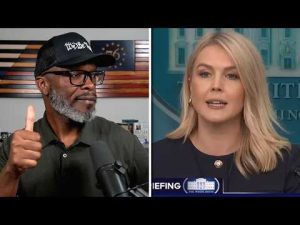In a recent revelation, Michelle Obama, the former First Lady, opened up about her decision not to attend Donald Trump’s inauguration and President Jimmy Carter’s funeral. This disclosure has sparked a debate about the obligations and responsibilities that come with holding a prominent public role. Michelle Obama cited personal reasons for her choices, emphasizing the need to make decisions that were right for her own well-being. However, this stance raises questions about the balance between personal desires and the duties inherent in being part of the presidential legacy.
The role of a First Lady, while not an elected position, carries significant weight. It is a role steeped in tradition and expectation, encompassing support for the President and participation in national ceremonies. The absence of Michelle Obama from these important events goes beyond personal preference; it touches on the broader responsibility to uphold the dignity of the office. In the political world, these ceremonies are about honoring the office and the country, not the individual in the seat at the time. Attending signifies respect for the process and continuity of governance.
When comparing Michelle Obama’s actions to those of other political figures, it becomes clear that attendance at such events is about more than politics—it’s about honoring national traditions. Bill and Hillary Clinton attended Trump’s inauguration despite their political differences with him. Their presence was an acknowledgment of the peaceful transfer of power, a hallmark of American democracy. Similarly, other former presidents and their spouses have attended funerals of political figures to show respect for their service. These duties are part and parcel of maintaining the integrity and unity of the nation.
Michelle Obama’s explanation for her absences highlights a modern struggle between self-care and public duty. While self-care is important, it should not overshadow the responsibilities that come with being a public figure, especially one who has held a position that influences millions. The essence of adulthood involves doing things we may not always want to do for the greater good of those we serve. It’s about setting an example and putting the country’s traditions and needs ahead of personal ones.
Ultimately, the decision not to attend such significant events reflects a narrow focus on individual preference rather than a broader understanding of public service. In the grand scheme, public roles require sacrifice and commitment beyond personal inclination. Michelle Obama’s choice to prioritize personal feelings over public duty has left many questioning the appropriateness of such decisions when representing a former president. It serves as a reminder that holding any role that impacts the public requires both integrity and an unwavering commitment to the responsibilities it entails.







